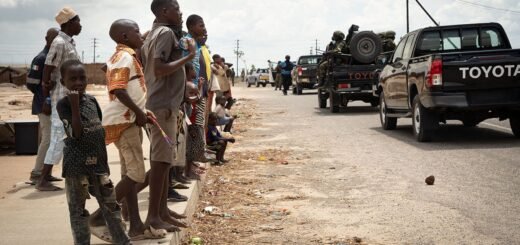Increasingly close to the first war for the water

More important than the militias of the Islamic State in Sinai, that the conflicts already resolved with Israel and which the reorganisation of the Muslim Brothers is, for Egypt, the water supply which takes from its main source: The Nile.
The growing Egyptian population, whose majority of its population lives in the desert area depend on the water for the agriculture, stockbreeding and personal use for their survival.
Any reduction in the water flow of Nile, produced by the use of the catchment area in upstream of Nile, affects directly the life of the population of Egypt, which maintains the water hegemony from the time of the Pharaoh.

once the central hydroelectric plant is completed, Ethiopia is going to become the major exporter of the cheap renewable energy of the region, supplying mainly to Sudan, Kenya and Uganda, and also to Extra-African countries. | Image: Africa Monitor
Ethiopia, the new energy potential
However, Sudan is not the main threat now for the water which the Egyptians consume, but Ethiopia, which took advantage of the internal chaos of the Arab Springs in 2011 for starting the construction of the hydro-electrical plant ‘Renaissance’, whose 70% is finalized now.
This energy project is going to be complementary with a huge reservoir. Thus, while it is being filled- it is estimated that is going to delay three years- Sudan and Egypt are going to see the flow of Nile considerably reduced.
But, once the central hydroelectric plant is completed, Ethiopia is going to become the major exporter of the cheap renewable energy of the region, supplying mainly to Sudan, Kenya and Uganda, and also to Extra-African countries.
The plant does not consume water, but the conflict is going to start when the dam is full and Ethiopia will decide how much water to drain into Sudan and Egypt since its objective is to maintain the regular flow throughout the year.
Are they on the edge of the war?
Traditionally, Cairo pointed Sudan as the prime threat for the river, that’s why it gave military support to the separatist in the South. With respect to Ethiopia, who always maintained the intention of diverting the part of Blue Nile for the irrigation, Egypt financed the rebels of the Ogden province.
The Cairo’s answer before every intention of the riverside nations of utilising a major portion of Nile, it was always fraught with threats, a strategy that always deterred its neighbours.
When the plant began to build Sudan allocated the place to the Egyptian army on the border with Ethiopia, but the government have changed the opinion.
Sudan is going to benefit from the uniform flow throughout the year, which is going to reduce the frequent droughts and also Sudan is going to obtain energy at the low price, keeping in mind an internal war, but supported by the USA, deprived this country of the greatest amount of oil resources in the south.
For their part, in 1979 the then Egyptian president Anwar el-Sadat declared after the peace treaty with Israel whose ‘the only motive that could lead to war in Egypt is water.”
Detente
Last year on 18th May, the External Affairs Minister and Water Resource minister of the three countries reached an agreement that experts of three countries are going to oversee the filling of the reservoir and the later distribution of the river water downhill.
Therefore, it is not going to stay only in the hands of Ethiopia the decision of how much water to be released. This transparent action in this delicate affair couldn’t come close to the parts and generate trust and co-operation.
Furthermore, Egypt had not only threatened with their military action by land but an aerial attack against the Ethiopian power plant, which is benefitting from the climate change.
In the first place, it is expected that the rainfall will increase in the Nile delta, while the artificial lake Nasser lost a huge quantity of water by evaporation, given that it is in a deserted area. Meanwhile in the further south, in Ethiopia, the tropical humid climate prevent the resource from being squandered by that means.
Thus, Egypt is going to receive more water than it obtains during the dry seasons.
Conclusion
It is going to be the good news for the region where the people are getting clean energy at the best price through the project of Ethiopia.
But, despite all the good intentions shown by the all the concern states but the mistrust of Egypt towards its neighbours of Nile, had increased during the British colonial era, can ignite the wick that unleashes the first war for the importance of the water of the industrial age.
This article is originally written in Spanish by Maximiliano Sbarbi Osuna who is a journalist, international analyst and columnist for various international newspapers, they are Observador Global and a daily BAE. For the complete article click here.



















